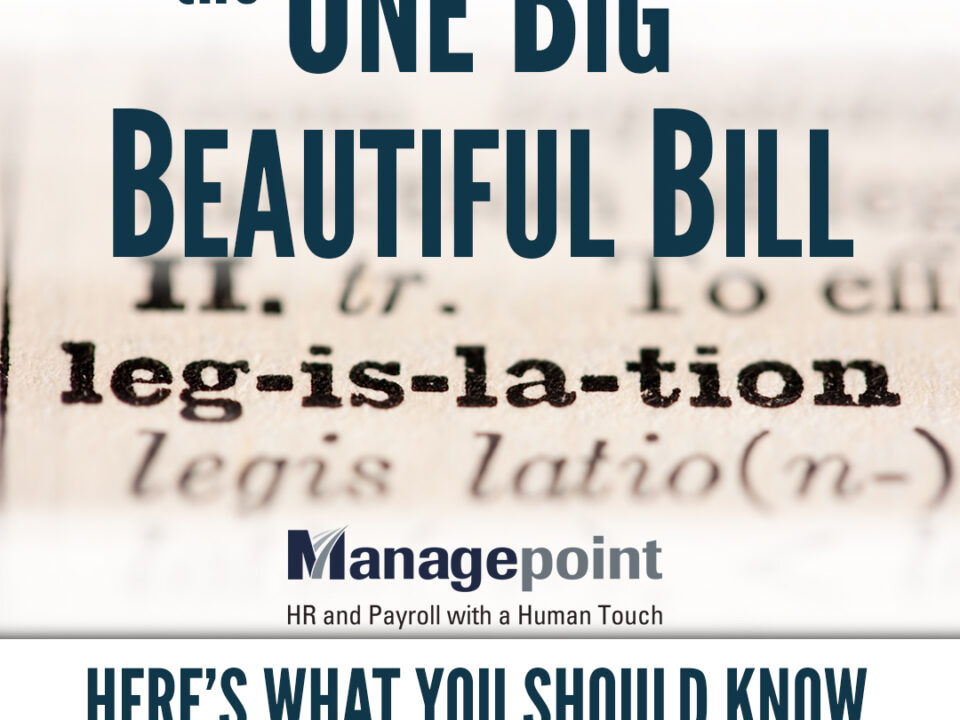5 Ways to Better Your Small Business HR Practices

If you only have a handful of employees, evaluating your HR practices may seem cumbersome and unnecessary. You all work together so well, and having a bunch of HR policies would just make your work environment too stuffy and corporate, right? Wrong. If you want to save yourself time, money, and a lot of headaches, even the smallest business needs to take its human resource practices seriously.
Hire the best people.
The first step is starting with the right employees. Don’t hire a friend or family member simply because you know them or rush into a hire after one interview. Reading resumes and interviewing can be an arduous process, but putting in the time and effort will ensure you hire the right person for the job and save you hours of headache in the long run. And if you dislike the hiring process that much, make sure to do it right the first time so that you don’t have to do it twice.
Write clear job descriptions.
Speaking of hiring the best fit for the job, to find the best candidates, you need to make sure your job descriptions are thorough and accurate. Take a few minutes to sit down with any supervisors and employees who will be working with the new hiree. Talk about the specific tasks and roles this person will be fulfilling, and come up with a list of unique skills and experiences this person will need. Not only will this keep under qualified people from applying, but you are also more likely to appeal to candidates who do have the skill set you need.
Have a policy handbook.
Besides clear job descriptions and expectations, employees also need clear policies. What’s business casual to one person may appear sloppy and unprofessional to another, and it is a lot more difficult to ask an employee to change his habits when you don’t have a clear policy to back you up. From overtime and vacation days to dress code and lunch breaks, giving employees an actual physical handbook ensures that your employees don’t have to fret over their vacation time and you won’t have to deal with policy miscommunications.
Document any and all infractions.
Having a handbook will clear up any confusion your employees may have about policies, but don’t expect it to put a stop to any infractions or performance issues. Hopefully, you won’t have to deal with subpar performance, but if you do, don’t ignore it. Give out written warnings and document any infractions. Then, if it comes to the point that you need to fire someone, you have documented proof of failure to follow company policies.
Know your legal responsibility.
There are a plethora of state and federal laws dictating how, when, and where people can work. Minors, residents, and non-residents are all subject to different laws, and making sure you classify your employees correctly is of the utmost importance. Unless you want the IRS hounding your door, your employees should all be classified as either hourly, salaried overtime exempt, or salaried overtime non-exempt. These are legally binding classifications that dictate how you pay overtime and report income among other things.
Almost all of this boils down to taking the time up front to do (sometimes unpleasant) jobs. If you don’t want an HR headache, do the work right the first time around. Trying to save time by cutting corners or expecting a problem to fix itself will only make the issue bigger and more difficult to deal with later. And don’t be embarrassed to get help when you need it. If you are like a lot of our clients, you’re best suited to concentrate on core business decisions, and the best solution could be outsourcing your Human Resources to professionals. That’s us. Managepoint is your premier outsourced Human Resources solution for convenient, cost-effective Human Resources consulting that, in more ways than one, makes for a happier workforce AND a more attractive bottom line.



